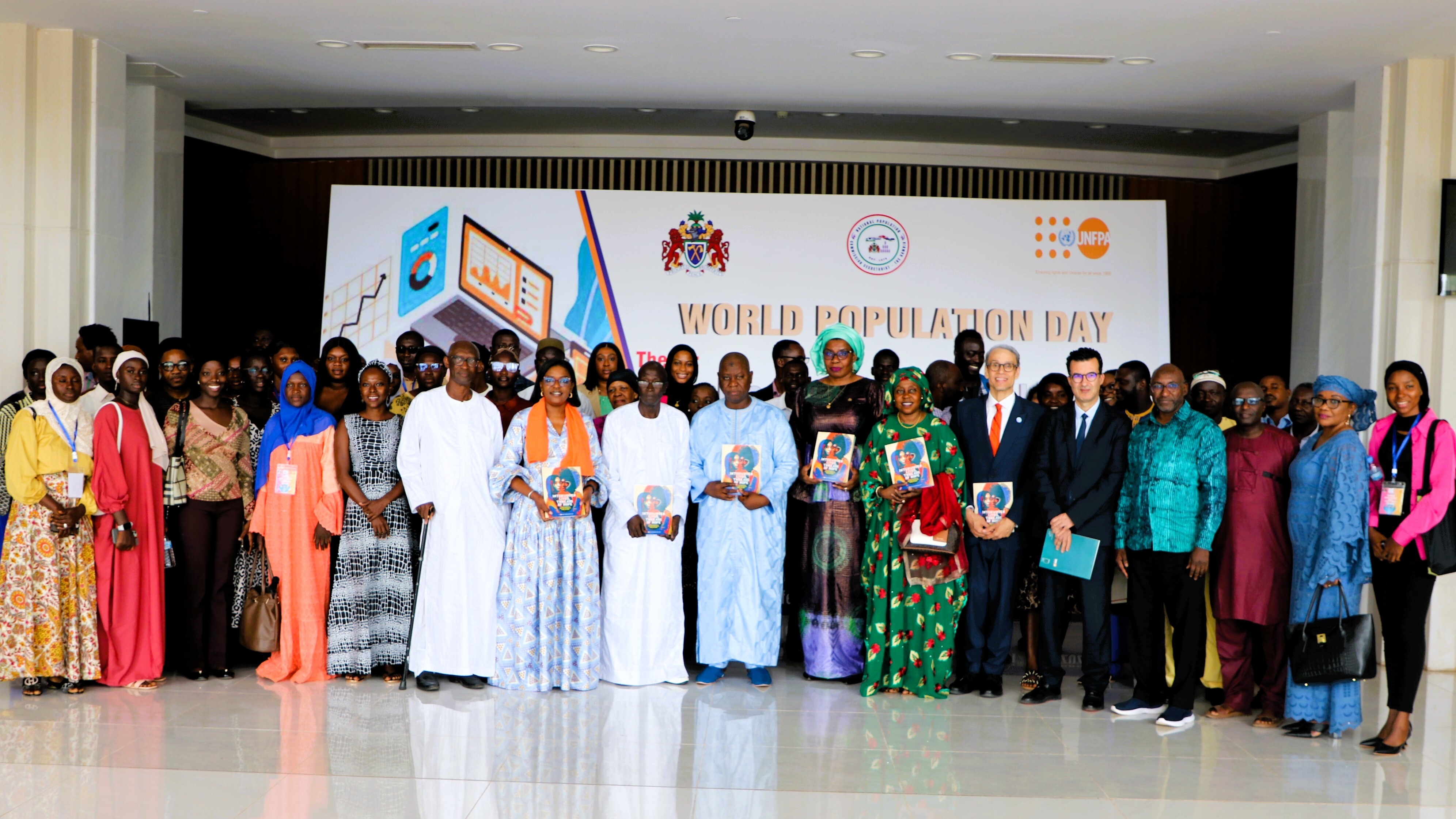A safe birth. A choice of contraceptives. Protection from gender-based violence. More people than ever before have realized these essential, life-sustaining rights. However, as highlighted by the State of World Population Report 2024, the number of people denied these rights has not yet reached zero – but it can and it must.
The State of World Population (SWOP) is an annual publication that provides an in-depth analysis of key issues related to global population trends and their implications. UNFPA The Gambia and the National Population Commission Secretariat (NPCS) commemorated World Population Day on July 11th and launched the State of World Population Report 2024 at the OIC Conference Center in Bijilo. The theme of the State of World Population Report 2024, "Interwoven Lives, Threads of Hope: Ending Inequalities in Sexual and Reproductive Health Rights," and World Population Day, "Embracing the Power of Inclusive Data Towards a Resilient and Equitable Future for All," underscore the urgency and importance of our collective mission to improve the lives and well-being of the populations we serve, especially women, girls, persons with disabilities, and young people.

Research reveals that, thirty years after the International Conference on Population and Development (ICPD) in Cairo, the global rate of unintended pregnancies has fallen by nearly 20 percent. The number of women using modern contraceptive methods has doubled, and at least 162 countries have adopted laws against domestic violence. Maternal deaths have decreased by 34 percent since 2000. However, progress has not been far-reaching enough, and significant disparities persist. Millions of women and girls have not benefited due to who they are or where they were born.
In a statement at the launch ceremony, UNFPA The Gambia representative Ndeye Rose Sarr highlighted the progress and challenges in The Gambia, noting that:
“In The Gambia, despite the contraceptive prevalence rate doubling from 9 percent in 2013 to 19 percent in 2019-2020, an increase of modern CPR to 30 percent by 2030 is needed to avert 350,000 unintended pregnancies. The maternal mortality ratio has declined from 433 to 289 per 100,000 live births between 2013 and 2019-2020 (DHS). This decline can be attributed to the increase in access to skilled birth attendants from 57.2 percent in 2013 to 84 percent in 2019. However, we still need sustained investments in infrastructure, human capital for health, and equipment to ensure that no woman dies while giving life in The Gambia. UNFPA will continue to support the Government in strengthening midwifery capacity and ensuring that services are available to women wherever they may be”.
Ms. Sarr commended the Government of The Gambia for successfully conducting its first digital census, a critical exercise to ensure development is informed by evidence. This year's World Population Day emphasizes the importance of comprehensive data that reflects the true demographics of The Gambia, ensuring every individual is counted and their needs are accounted for.
The UN Resident Coordinator in The Gambia, Karl Frédérick Paul, and the Secretary General of the Civil Service, Madam Salimatou Touray, also underscored the significance of World Population Day and the SWOP report in understanding population dynamics and ensuring the reproductive health of women, girls, and young people in The Gambia.
*********************
Media contact: Fatoumatta Cham-Program Analyst,Communications (fcham@unfpa.org)


